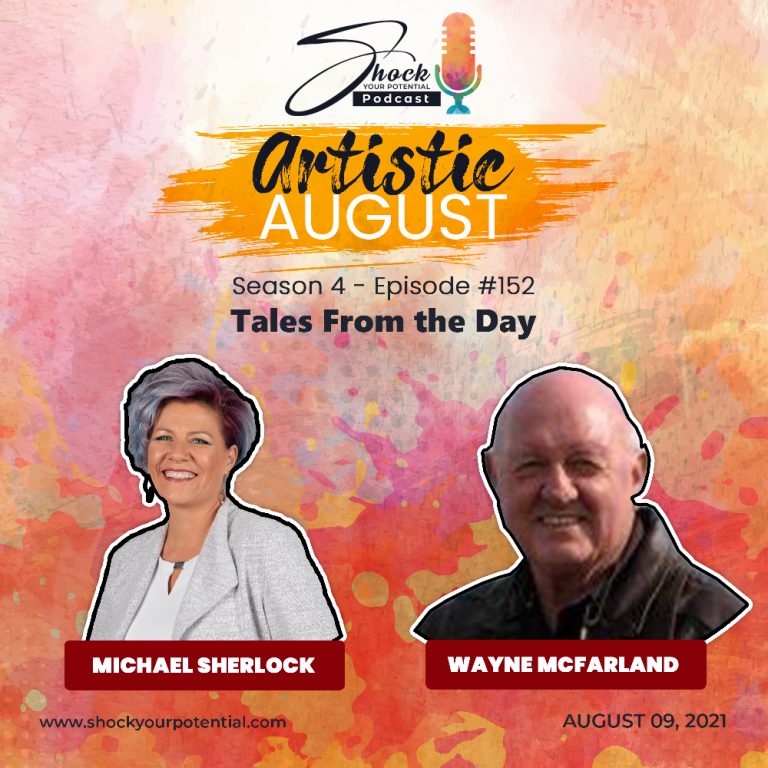“You start to inspire people by them relating to what they can see in themselves from what you’ve experienced.” Keith Renninson
The most rewarding times in life are those that challenge us the most. Those that force us get deep inside ourselves and discover some of the strengths that we never knew existed within. Our guest today, Keith Renninson, went through such an experience when he got lost while in a hiking trip and it ended up changing his life for the better.
Keith is a Colorado native obtaining his CFP from the College for Financial Planning in 1989. His education was spread out over several decades with two years in the Army with a tour in the Vietnam War.
His new award-winning book “Tenacity: You Don’t Have to Get Lost in Nepal to Find Yourself, But it Helps!” is based on the second trip when he traveled alone and got lost for a few days in the Himalayas. He developed his TRIP Technique System from his book and has been giving in-person, virtual & hybrid meetings to excited audiences since. Recently, Keith developed his TRIP Technique Assessment which scores individuals on their strengths and weaknesses at tenacity, resilience, imagination, and purpose (TRIP)
Keith has been well known for his car & bike racing, love of skiing and as an amateur photographer. He began his speaking career in 2013 in Toastmasters, then joined his local chapter of the National Speaking Association where he served as the Secretary/ VP of Operations for four years.
In today’s episode, Keith will talk about his journey in the military and how one hiking trip changed his life forever.
Listen in!
Contacts
http://www.thetriptechnique.com
- I was drafted in 1969 and I went to basic training in Fort Lewis Washington, where I took a whole battery of tests like everybody does to figure out what your military occupation is going to be. [3:24]
- I was posted to Fort Hood, Texas to work on civilian made weapons which I did testing in the prairies of Texas, before they actually released them out into the military. [3:37]
- I ended up going to Vietnam after about seven months and once again in the top secret clearance facility where I was gathering information. [4:54]
- My two years in the service taught me a multitude of things which included working within a team and rising to leadership. [5:30]
- Once I got out of the army, I wanted to be a leader with whatever I did, which was sometimes pushy and sometimes it was fun. [5:56]
- The army also taught me really good communication skills, because you’ve got to be very accurate in what you talk about in the military. [6:11]
- I was an insurance agent and a financial planner for 42 years and that’s where I guess I gained all of that tenacity to be an independent person and have my own business. [6:27]
- I got my trekking permit in Katmandu canceled due to unfavorable weather and I had to redesign the trip. [8:46]
- I ended up going into an area that I had not researched and within about four or five hours of starting that trek, my equipment stopped working and I got lost. [9:08]
- I meditated and journaled each day and I started to looking at my life and writing what I wanted to do when I got home. [9:34]
- After I retired, I started to do what I wrote down I’m now doing exactly what I wrote down in my journal while I was lost, which was become an author and a public speaker. [9:52]
- I love telling stories and I can see them going through my head as I’m telling them and reliving them and the excitement builds back up inside of me. [11:35]
- I probably exude that from the stage and it’s just one of those things where you start to inspire people by them relating to what they can see in themselves from what you’ve experienced. [11:43]
- I researched and came up with how I could take my speaking to the next level and what I could do that was different. [14:19]
- Trip technique assessment helps people learn their strengths and weaknesses in tenacity, resilience, imagination and purpose. [14:47]
- Commercial Break. [15:34]
- The military teaches you discipline, having a hierarchy and understanding how the ranks work and how you could work with them. [17:07]
- I came home in the 1971 and the hippie era was still going on and I ended up for a while being a disc jockey at night and a discotheque. [17:50]
- It was a lot of fun to be able to work during the day as a banker during the daytime and a disc jockey at night. [18:05]
- I wanted to be able to be disciplined enough to have those areas of my life very distinctly purposed, and do them on purpose so that I could really come out with what I wanted on the other end. [18:25]
- Both jobs ironically prepared me for what I doing now. [18:36]
- It was a tough time to come back from Vietnam because we were not liked as soldiers in those days. [20:22]
- We were proud of our service and what we had accomplished and so it was something I came home with and felt good about it but I couldn’t feel good about it publicly. [20:41]
- I had my own kind of problems that came out of it and I had a long battle with hyperventilating whenever I got in a stressful situation and I actually went sought some help out. [22:07]
- Be kind to your soldiers as they come home and as they suffer now a little bit because of the feelings left after Afghanistan. [23:59]
- We need to recognize that that tour of duty that they all did and the results that we all were blessed with. [24:16]
…………………………………….
Thank you to our November Sponsor: Entrepreneur’s Guide to Financial Well-Being or Wayne Titus
Imagine starting a long journey without a map…or even a clear idea of the obstacles ahead. That’s exactly what it’s like for entrepreneurs who start companies with a lot of passion, but without the financial expertise to grow and scale their businesses and create long-term wealth for their families.
Wayne Titus shows you how to find a financial adviser who can help you map a better journey. In his book, The Entrepreneur’s Guide to Financial Well-Being. With the right adviser at your side, you’ll have the freedom to focus on what really matters to you.
Get The Entrepreneur’s Guide to Financial Well-Being at Amazon.com and in the virtual bookstore on the Shock Your Potential app.




